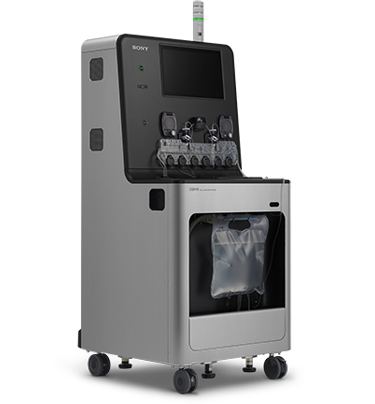-
Sign In
-

-
 Sony Biotechnology
Sony Biotechnology
-

-
 Sony Biotechnology
Sony Biotechnology
-
Selecting the Best Clone for Your Flow Cytometry Experiments

With literally thousands of commercially available fluorochrome conjugated antibodies for flow cytometry, there are many choices for your application. In many cases several clones are available to the same target. How do you evaluate which clones are best for your research?
- Define your application- Are you using live or fixed samples? Will you be looking at intracellular antigens such as cytokines or transcription factors? Some clones perform better than others under different fixation and permeabilization conditions. Evaluate published and manufacturer data for the clone under the conditions in which you plan to use it.
- Publications - There are many published flow cytometry panels. One good resource is Optimized Multicolor Immunofluorescence Panels (OMIP) published in Cytometry Part A. OMIPs are optimized, peer-reviewed panels with sufficient information to reproduce the data. These panels provide the specific clone used and detailed information about the sample and other experimental conditions.
- HCDM - Human Cell Differentiation Molecules (HCDM) runs the Human Leukocyte Differentiation Antigens (HLDA) workshops that characterize and designate CD (cluster of differentiation) markers for human antigens. Started in 1982, this organization sends out new antibodies to volunteer scientists for testing. New antibodies are coded and sent with characterized antibodies for comparison. Results are reviewed and new CD markers and antibodies are designated. The HDCM provides information about which clones have been tested and additional antigen information on their website.
- Nonhuman primate cross-reactivity- If you plan to use nonhuman primate samples (baboon, chimpanzee, etc.), the NIH Nonhuman Primate Reagent Resource list clones that have been tested in different nonhuman primate species.
- Empirical testing- purchase the available clones and determine which one gives you the best results in your experiment. This is particularly useful if you plan to run the panel several times. Although significant effort has been made to improve the reproducibility of flow cytometry experiments, results can and often vary by laboratory. In house testing of antibodies at several concentrations will provide the best and most consistent results.
In this article resources from peer reviewed and not for profit organizations have been provided. Determining the right clone for your experiment can improve the quality of your result in addition to saving time and money.


